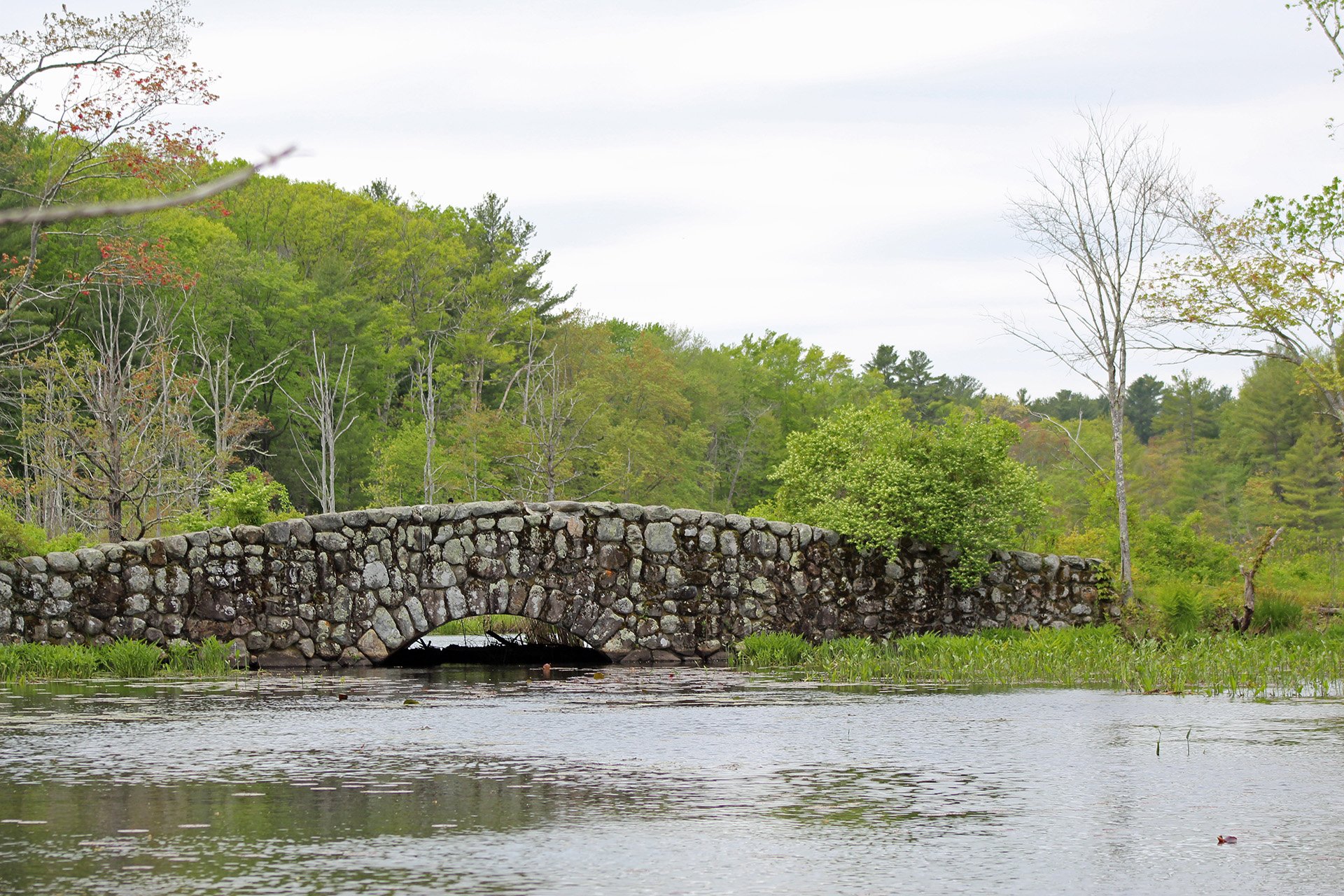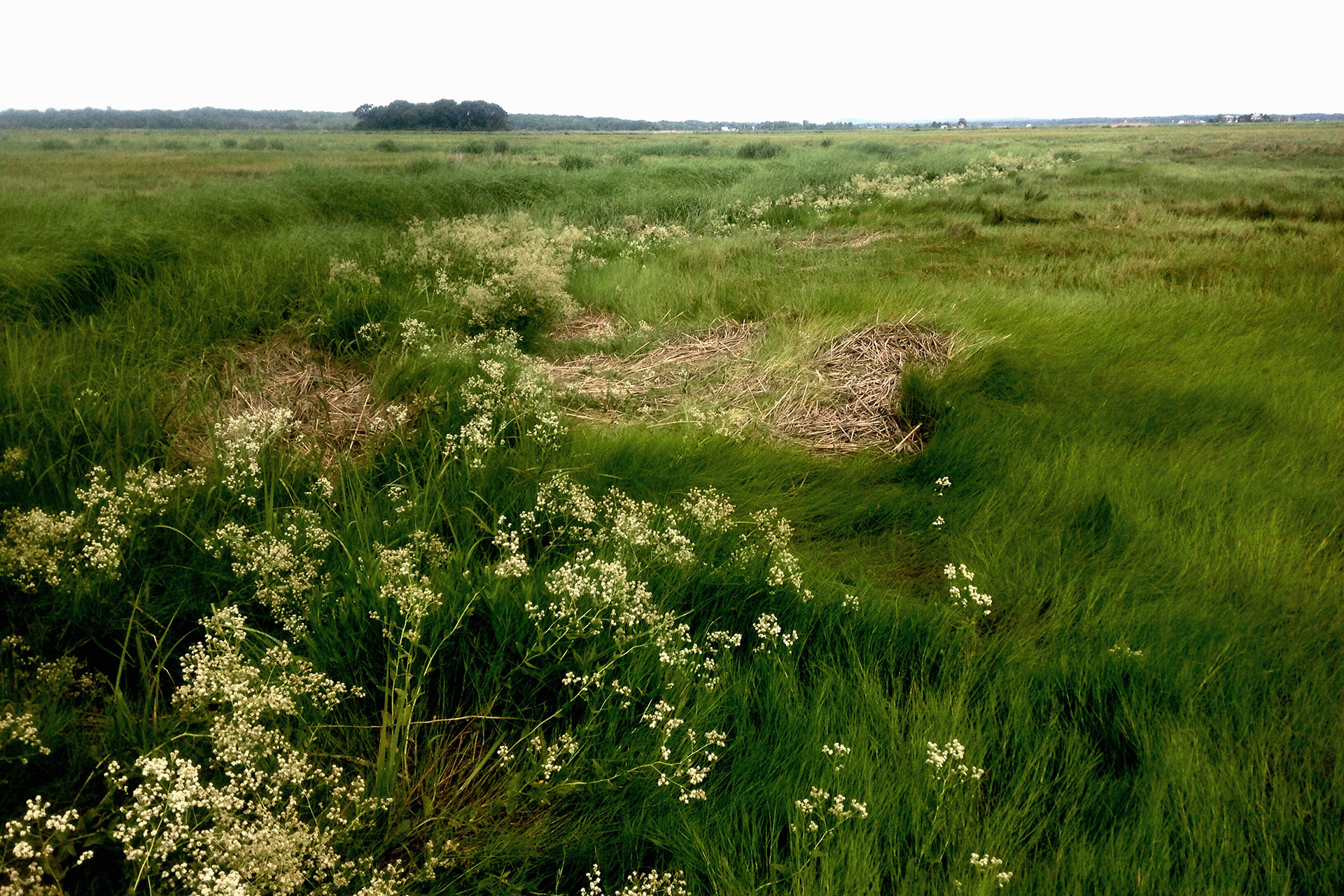Invasive Perennial Pepperweed Control in the North Shore
June 24, 2024
Mass Audubon’s North Shore team continues to tackle one of the greatest environmental challenges in species management. Throughout the Great Marsh, Perennial Pepperweed has taken over. However, its ongoing removal is in full effect, thanks to the work of dedicated staff, community partners, and volunteers.
What is Perennial Pepperweed?
Perennial Pepperweed (Lepidium latifolium) is an herb native to Europe and western Asia that was introduced—perhaps accidentally—to the United States. No matter how it arrived, it's been growing and spreading at an alarming pace in the last few decades.
In Massachusetts, Perennial Pepperweed is an invasive plant that grows in estuaries, salt marshes, dunes, the banks of tidal creeks, and roadsides. Their seeds float, so when the tide comes in, it carries the seeds out into the estuary, and then deposits seeds throughout the system.
Perennial Pepperweed has miniature white-petaled flowers at the tops with alternating lanced-shaped leaves on the stalks.
What We're Doing to Combat the Invasive Pepperweed
At Great Marsh, we’re seeing the invasive pepperweed crowd out native species like marsh elder (Iva annua), salt marsh hay (Spartina patens), and dune grass (Ammophila breviligulata.) Over 3,000 known pepperweed locations have been identified in the Great Marsh.
Since 2006, Mass Audubon has worked with the U. S. Fish and Wildlife Service and other community partners to contain the spread of this tenacious plant by manual removal and limited, targeted herbicide application. Invasive Plant Control Technicians and volunteers are working hard hand-pulling plants from Gloucester to Salisbury. Today, 40% of the original 3,000 mapped locations are now free of pepperweed.
Without this active land management, critical marsh habitat would be lost, with cascading effects. For example, the Saltmarsh Sparrow, a Massachusetts State Listed Bird of Special Concern, has seen a population decline in recent years due to salt marsh habitat loss. By limiting Perennial Pepperweed’s reach, we can preserve the specialized nesting site the Saltmarsh Sparrow depends on.
Our results thus far are promising. We have demonstrated that with consistency, efficiency, and community, invasive species management can successfully protect the nature of Massachusetts for people and wildlife.
The Future of Pepperweed at Great Marsh
While heavily infested areas have been diminishing consistently throughout the years, we must persist in controlling the spread of this tenacious plant. To ensure pepperweed locations remain clear and those near eradication become clear, Mass Audubon will continue the battle of invasive species management throughout the Great Marsh.
If you are interested in assisting with this effort, please email Heather McIntosh, our Great Marsh Restoration Coordinator, for more information.




